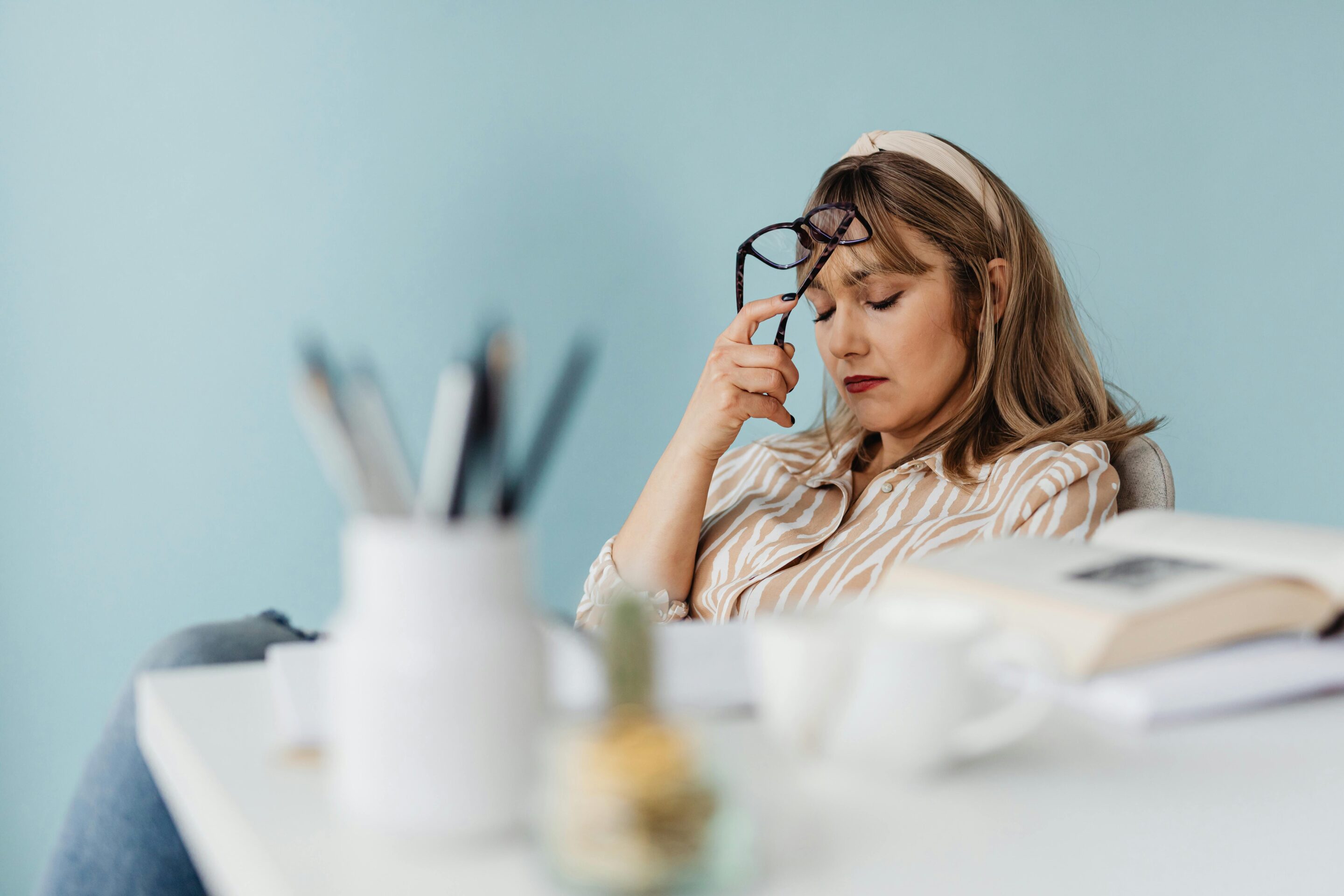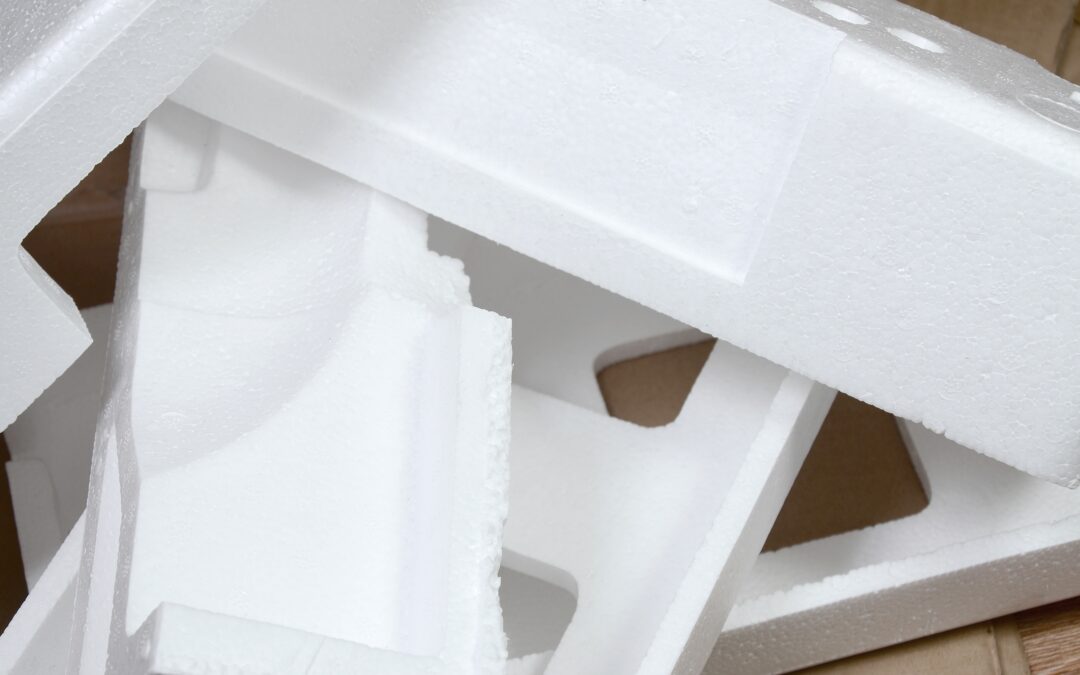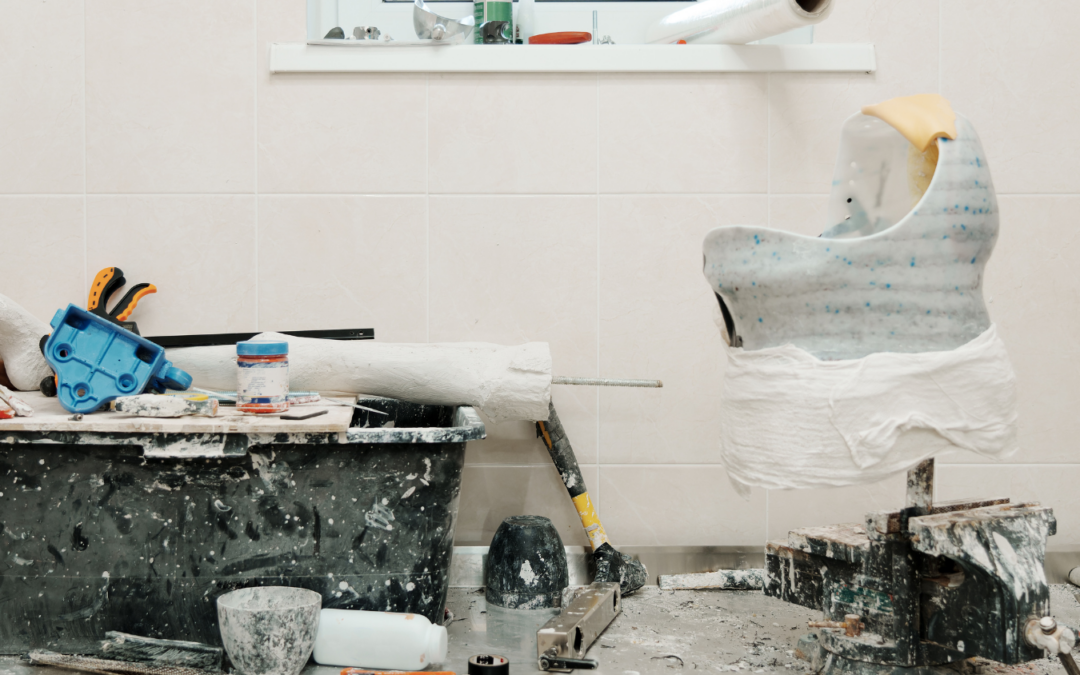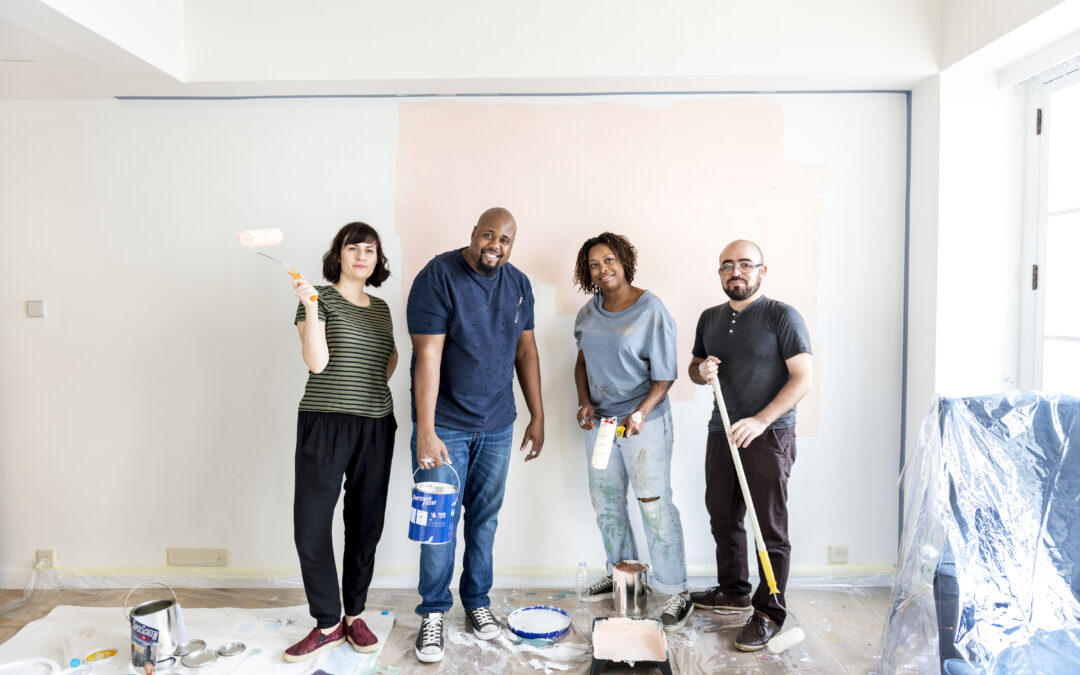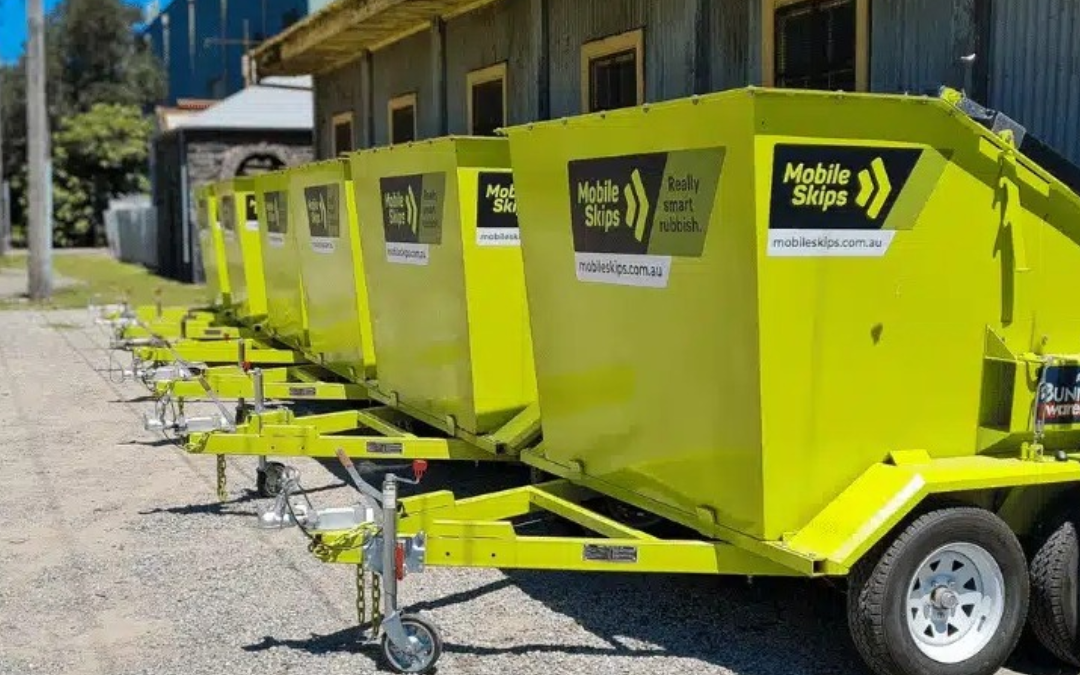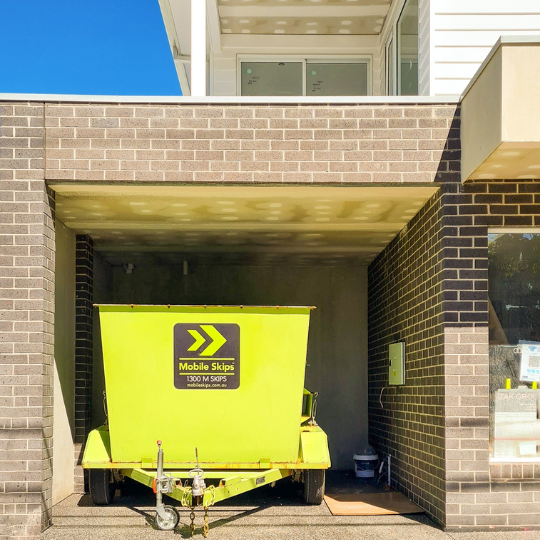Benefits of Home Decluttering
Creating a peaceful home isn’t just about aesthetics; it’s about feeling good in your space. Decluttering can work wonders for both your home and your mind. Let’s explore how tidying up can boost your mental and physical health.
Mental Health Perks
Your surroundings can mess with your head. Clutter, whether it’s stuff lying around, digital chaos, or emotional baggage, can stress you out and drain your energy. It’s linked to anxiety, tiredness, and even depression. Clearing out the clutter can help you feel more in control and calm.
When you start organizing, you’re not just cleaning up; you’re building skills to handle stress better. Tackling small tasks can give you a sense of achievement and control, which can improve your overall mental health (CAMH).
Better Sleep
Decluttering can also help you sleep better. A messy bedroom can keep you from relaxing and falling asleep. By tidying up, especially by keeping gadgets out of the bedroom, you can create a more restful environment.
Making your bed every morning and keeping your sheets clean can also help you sleep longer and better. These small habits tell your body it’s time to relax, making it easier to fall asleep and stay asleep (CAMH).
Decluttering isn’t just about cleaning up; it’s about setting the stage for a healthier mind and body. Check out our decluttering checklist for home to get started on creating a clutter-free space and a clutter-free mind.
Professional Decluttering Services
Feeling buried under a mountain of clutter? Professional decluttering services might just be your ticket to a more organized and peaceful home. Let’s check out what Horderly and Merry Maids bring to the table.
Horderly Services
Horderly sends in top-notch organizers who know their stuff. They create simple, easy-to-maintain systems that make your home feel like a breath of fresh air. People can’t stop talking about how Horderly has changed their lives, making everything just click into place (Horderly).
After years of organizing countless closets, Horderly rolled out The Horderly Closet Products, a line that meets their high standards for structure, functionality, and looks (Horderly). They focus on decluttering spaces like kitchens by grouping similar items, setting up zones, and using containers and labels to cut down on stress and boost efficiency. Plus, they offer budget-friendly solutions, proving that sometimes one well-placed item can make a world of difference (Horderly).
Merry Maids Offerings
Merry Maids offers decluttering services that fit your needs, whether it’s a messy bathroom cabinet or an entire house overhaul. They’re perfect for those big life changes like moving, having a baby, or starting a new job, providing much-needed support during chaotic times.
Their services cover kitchens, closets, bathrooms, bedrooms, and playrooms, giving you the flexibility to get help wherever you need it (Merry Maids). Unlike regular cleaning, their decluttering focuses on finding a home for everything, turning chaos into order. And once the clutter’s gone, Merry Maids also offers deep cleaning to make sure your home shines.
Picking the right decluttering service can make a huge difference in your home’s organization and your peace of mind. Whether you go with Horderly’s knack for creating lasting systems or Merry Maids’ flexible, all-in-one approach, professional help can lead to a more organized and stress-free home. For more tips on decluttering, check out our guide on decluttering your home and explore various decluttering and organizing services to find what works best for you.
Decluttering Methods
Ready to clear out the clutter and breathe new life into your home? Here are some tried-and-true methods to help you get started. Pick the one that fits your vibe and lifestyle.
KonMari Method
Marie Kondo’s KonMari Method is all about joy. Hold each item and ask, “Does this spark joy?” If it doesn’t, thank it for its service and let it go. It’s not about tossing stuff willy-nilly; it’s about keeping what makes you happy. Gather your things by category, feel each one, and listen to your gut. If it no longer brings joy, it’s time to say goodbye. This method not only tidies up your space but also helps you focus on what really matters. For a detailed guide, check out how to declutter your house using the KonMari Method.
Minimalist Game
Want to make decluttering a game? Try the Minimalist Game. On day one, get rid of one item. On day two, two items, and so on. By the end of the month, you could have cleared out up to 496 items! This fun approach, created by Ryan Nicodemus and Joshua Fields Millburn, is perfect for easing into decluttering. The gradual increase helps you build momentum and sharpen your decision-making skills. For more fun decluttering ideas, browse through decluttering tips for beginners.
Four Box Method
The Four Box Method is simple and effective. Label four boxes: ‘Put away’, ‘Give away’, ‘Throw away’, and ‘Undecided’. As you go through your stuff, place each item in one of these boxes. This method helps you make decisions without feeling overwhelmed and lets you revisit the ‘Undecided’ items later. It’s a great starting point detailed in decluttering and organizing services.
The One Method
Prefer a slow and steady approach? The One Method suggests removing just one thing from your home daily. It could be a single item, a box, or a bag. This gentle method helps you build a daily decluttering habit without the stress of a massive overhaul. Its simplicity and adaptability make it easy to stick to your personal decluttering goals. Learn more about building a decluttering habit at decluttering and minimalism.
Packing Party Method
The Packing Party Method, popularized by The Minimalists, is a bold way to tackle clutter. Pack up all your belongings as if you’re moving. Over the next few months, only unpack what you need. Anything still boxed up after three months probably isn’t essential and can be sold or donated. This method can lead to big changes in your living space and how you view your possessions. For those considering a big life change, this method aligns well with decluttering before moving.
Each of these methods offers a unique way to declutter. Whether you’re looking for a drastic change or a slow shift towards minimalism, there’s a technique that fits your pace and preferences. Pick the one that feels right and start your decluttering journey today.
Decluttering Tips for Homeowners
Ready to turn your home into a peaceful haven? It all starts with getting rid of the clutter. Here are some practical tips to help you sort, discard, and organize your space.
Start Small
Jumping into decluttering can feel like diving into a sea of stuff. Start with small, manageable tasks to keep from feeling overwhelmed. Begin in your bedroom by clearing out clothes you never wear, old magazines, and extra shoes. This quick win will give you a sense of accomplishment and make room for the essentials (Go Mini’s). Need a step-by-step guide? Check out our decluttering checklist for home.
Smart Sorting
Sorting your stuff can speed up the decluttering process. Here’s how:
- Group by Type: Put similar items together—clothes, books, kitchen gadgets—and tackle each group one at a time.
- Usage Frequency: If you haven’t used something in over a year, it’s probably not essential.
- Emotional Value: Be honest about what items mean to you. If it doesn’t tug at your heartstrings, let it go.
- Condition: If it’s broken or worn out, toss it.
For your closet, ditch clothes you haven’t worn in the past year or that don’t fit. Donate them to local charities or consignment shops to give them a second life. For more tips, visit our page on decluttering and donating.
Donate and Sell
As you sort, set aside items for donation. Look up local charities or organizations that accept donations, and consider volunteering there too. It’s a great way to give back (Go Mini’s).
Got stuff that’s still in good shape? Sell it! Use online platforms, yard sales, or consignment stores to find new homes for your items. This not only clears your space but can also put some cash in your pocket. Learn more about turning clutter into cash by visiting decluttering and selling unwanted items.
Decluttering can be freeing and can make your home feel more serene. Use these tips to get started, and find more strategies on our home decluttering tips.
Decluttering and Mental Well-being
Decluttering your home isn’t just about making it look nice; it’s about boosting your mental health too. Tidying up can really lower your stress and improve your overall life.
Impact on Stress Levels
Clutter can be a real headache. A messy space can make your mind feel just as jumbled. By decluttering and organizing, you’re taking charge of your surroundings, which can seriously cut down on stress. Research from CAMH shows that clutter—whether it’s physical, digital, or emotional—can lead to stress, fatigue, and even depression. Cleaning up your space means you’re also clearing out mental clutter.
Starting small with decluttering tasks can help you build coping skills and resilience, making you feel more relaxed and in control. As you check off tasks from your decluttering checklist for home, you’ll probably notice a drop in your stress levels, creating a positive cycle that keeps you going.
Sleep Quality Improvement
A cluttered bedroom can mess with your sleep. Electronic devices, in particular, can throw off your sleep patterns. By decluttering your bedroom and turning off devices before bed, you’re setting yourself up for better sleep. Simple actions like making your bed every morning and using fresh, clean sheets can also help you sleep longer and more restfully, as noted by CAMH.
The link between a tidy sleeping environment and better sleep is clear. A decluttered room can cut down on distractions and create a calming atmosphere that helps you relax and sleep. For more tips on improving your sleep through decluttering, check out our advice on decluttering and mindfulness and how it can lead to a more restful night.
By understanding the connection between decluttering and mental well-being, you can make smart choices about how to tidy up your home. Whether you’re looking to reduce stress or get better sleep, decluttering can be a therapeutic and life-changing process, leading to a happier and healthier you.
Effects of Clutter on Mental Health
Your living space isn’t just where you crash after a long day; it can mess with your head too. Clutter might seem harmless, but it can sneakily stress you out. Let’s break down how your messy home can mess with your mind.
Depression and Anxiety: The Clutter Connection
You might think that pile of stuff in the corner is no big deal, but it can actually mess with your mood. Research from anthropologists and social scientists shows that homes filled with too much stuff can make you feel down, especially if you’re a woman (Nourishing Minimalism). They found that people in cluttered homes often have higher cortisol levels, which means more stress and a higher chance of feeling anxious or depressed.
Take the U.S., for example. Americans buy over 40% of the world’s toys, yet they only have 3.1% of the world’s kids. Parents often buy stuff to make up for working long hours, but this can lead to guilt and, you guessed it, more stress and anxiety (Nourishing Minimalism).
Emotional Attachments to Stuff
Clutter isn’t just a physical mess; it’s an emotional one too. Getting rid of stuff can be tough because we often attach feelings to our things. Maybe it’s guilt over tossing something expensive or sentimental value tied to memories. Plus, with our busy lives, who has time to declutter? This leads to a never-ending cycle of accumulating more stuff.
Think about it: an average room can have over 2,000 visible items, especially in places like your office or computer area. This overload can make you feel anxious and overwhelmed. It’s key to understand that organizing isn’t the same as simplifying. True simplification means getting rid of enough stuff so that everything left has its own spot, tackling the root of the problem.
Feeling swamped by all your stuff? You’re not alone. Many people struggle with decluttering, especially when emotions are involved. For some help, check out decluttering tips for beginners or decluttering and downsizing to make your space more manageable. Remember, decluttering isn’t just about a tidy home; it’s about a clearer mind too.
Simplifying vs. Organizing
Tackling the mess in your home can be a game-changer, not just for your living space but for your peace of mind too. But before you dive in, it’s key to know the difference between just organizing your stuff and really simplifying your life.
What True Simplification Means
True simplification isn’t just about making things look neat; it’s about cutting down on the stuff you own to only what really matters. This isn’t just about a clean look; it’s about ditching the extra baggage that drags you down. According to Nourishing Minimalism, organizing isn’t the same as simplifying. Sure, matching containers and clever storage can help for a bit, but the real win is getting rid of enough stuff so that everything you keep has its own spot.
When you simplify, you’re not just moving clutter around—you’re getting rid of it. This might mean saying goodbye to things you’ve had for years or really thinking about what’s necessary. It’s a mindset shift and a willingness to embrace ideas like minimalism and intentional living.
Getting to the Root of the Problem
Simplifying means facing the reasons behind your clutter. It’s about figuring out why we collect things and what emotional ties we have to our stuff. It’s not just about the physical act of getting rid of things but also about dealing with the mental patterns that lead to overaccumulation.
You might need to ask yourself some tough questions about why you keep certain items and if those reasons are actually helping you. Do your things bring you joy, usefulness, and purpose, or are they just filling a void? By tackling these core issues, you create not just a more organized space but a more balanced life. You might find that this process not only clears your home but also clears your mind, leading to better mental health and less stress.
As you simplify, check out resources like decluttering tips for beginners and decluttering checklists for home to help you along the way. Whether you’re decluttering before moving or just looking for a fresh start, the journey towards true simplification can be one of the most freeing experiences you’ll ever have.
Too Much Stuff? Here’s How It Messes with Your Head
Your surroundings can mess with your mind more than you think. Having too much stuff around can really throw you off. Let’s break down how a cluttered home can mess with your daily life.
Clutter Overload and Stress
Ever looked around your room and felt like your brain was about to explode? That’s clutter overload. An average room, especially your office or computer area, can have over 2,000 things in plain sight. This mess doesn’t just crowd your space; it crowds your mind, too. You might not even notice it happening, but all that stuff can make you feel overwhelmed and anxious.
When your space is a mess, your mind is a mess. It’s hard to focus, your stress levels shoot up, and you end up feeling drained. It’s not just about the number of things but the chaos they create. To chill out, try decluttering and minimalism. It can help you clear the clutter and find some peace.
Family Drama and Clutter
Clutter doesn’t just mess with your head; it can mess with your family, too. Studies show that too much stuff at home can affect your health, especially for women. While guys might not be as bothered by the mess, women often feel more stressed and down in cluttered homes. This can lead to a kind of emotional freeze, where everyone feels stuck and can’t deal with the mess.
One study even found that women in cluttered homes had higher stress levels. This constant stress can be a real killer, making it tough to break free from the clutter. To get a handle on it, think about getting some decluttering and organizing services for a little extra help.
Knowing how too much stuff can mess with you is the first step to fixing it. By spotting the signs of clutter overload and emotional freeze, you can start to take action. Check out our decluttering checklist for home and decluttering ideas for small spaces to kickstart your journey to a calmer, more organized home.

